Deep Dive on Supplement Scams: How AI Drives ‘Miracle Cures’ and Sponsored Health-Related Scams on Social Media

Sponsored social media content has become increasingly present on feeds. Sponsored ads can often be beneficial as they are customized to suit online personas, offering relevant content tailored specifically for you. While personalized ads can help enhance your online experience, not all are legitimate. In fact, scams originating from phony ads on social media have increased dramatically, with potentially severe consequences for consumers.
Sponsored supplement scams on social media platforms
Health and well-being are favored topics cybercriminals use in their campaigns to steal information and dupe people out of money.
These scams involve criminals creating fake ads and websites that offer low-cost miracle products, medication, or treatments that promise to cure persistent conditions, even cancer.
Researchers at Bitdefender Labs collected and analyzed health related scams across the globe over a three-month period from March-May 2024.
Key Findings
- A marked increase of health-related fraudulent ads leveraging AI-generated images, videos and audio promoting various supplements on Meta’s social platforms: Facebook, Messenger and Instagram
- The highest number of followers of a compromised/fake page that promoted false advertisements is over 350,000
- Scammers used over 1,000 different deepfake videos across communities
- Over 40 medical supplements ads were promoted
- Most of the ads cater to targeted geographical regions with tailored content using the names of celebrities, politicians, TV presenters, doctors and other healthcare professionals to bait consumers
- Impersonated figures include Brad Pitt, Cristiano Ronaldo, George Clooney, Dr. Ben Carson, Bill Maher, Denzel Washington, Dr. Heinz Lüscher, Dr. Jan Šula, Dr. Roman Šmucler, Dr. Marko Noč, Dr. Tomaž Klokočovnik, Dr. Fekete Andrea, among others
- Impersonated figures in Romania include Andreea Esca, Dr. Mihail Pautov, Dr. Monica Pop and many others. A boosted sponsored advertisement impersonating a well-known Romanian priest gathered over 6000 reactions and 900 shares
- Campaigns targeted millions of recipients across the globe including Europe, North America, the Middle East, Asia, and Australia.
Socially engineered deepfakes are changing the landscape
Today's technological advancements, including AI, allow scammers to significantly increase the reach and success rate of their fraudulent activities, making it much harder for individuals and organizations to defend against them. In the context of health scams, such as the ones we describe in our report below, the rise of deepfakes grants fraudsters a fresh take on old schemes and more credibility than ever before.
Here’s why:
- AI allows threat actors to tailor scam messages and ads to the interest and vulnerabilities (health problems) of individuals, and as such increases the likelihood of engagement with fraudulent content
- It enables scammers to generate highly convincing messages that are both grammatically correct and in context with the ads they push through social media platforms
- Tailored ads associated with fake videos of celebrity figures and well-known medical professionals further increase the likelihood of a successful scam campaign
The analyzed deepfake samples are of all possible qualities. While most of the videos show clear signs of tampering, our researchers found many instances of videos that were more difficult to put down in the deepfake category.
All samples use the same technique, adapted to each targeted audience --use the credibility and fame of a well-known figure to promote easy cures for common ailments in the targeted group. We have observed deepfakes in the following languages: English (which include audiences from the US, UK, Australia and so on), Romanian, Italian, Spanish, Portuguese, German, French, Russian, Czech, Slovak, Slovene, Latvian, Lithuanian, Hungarian, Bulgarian, Polish, Greek, Croatian and others.
The phenomenon in numbers
While it may seem that the supplement scams just changed means of propagation, the fact that millions of people can be reached by paying modest sums is extremely alarming and needs urgent moderation. Here are some statistics that prove how dangerous this phenomenon has become:
- Thousands of pages promoting medical supplement scams
- Tens of thousands of social media advertisements created by the actors behind the campaign
Cybercriminals cheat users out of money, time and health
Malicious actors utilize various strategies to strengthen their credibility and deceive social media users. Here are some of the most used tactics:
- Scammers will say anything to convince you to buy their fake products and services. They include catchy phrases designed to captivate and manipulate emotions
- Rush individuals into deciding on the spot with limited time offers and discounts. Although they initially bait individuals with a discount for purchasing a single product, the scammers are extremely insistent over the phone trying to convince you to purchase multiple products at once to ensure that the “treatment” will be effective.
- Spread false promises to exploit vulnerable individuals in need
- Use deepfake technology to make convincing but entirely fabricated content. These methods are all part of a concerted effort to deceive and manipulate targets for their purposes.
Despite the often too-good-to-be-true nature of such advertisements, many individuals still fall prey to this deceptive content. This can be attributed to several factors, including a lack of awareness, blind trust in online information, the prevalence of false reviews, and the need for individuals to regain their health. In some cases, the scammers even exploit individuals who are desperate in finding a solution or treatment that will help them ease symptoms or even cure chronic underlying diseases.
Some of the most observed scenarios are depicted in the following examples, sourced from advertisements in Romania and around the globe:
1. Advertisements are described as alternatives to conventional medicine. The decline in trust in conventional medicine, aggravated by many scandals within the pharmaceutical industry, is often used to prompt consumers into seeking alternative solutions.
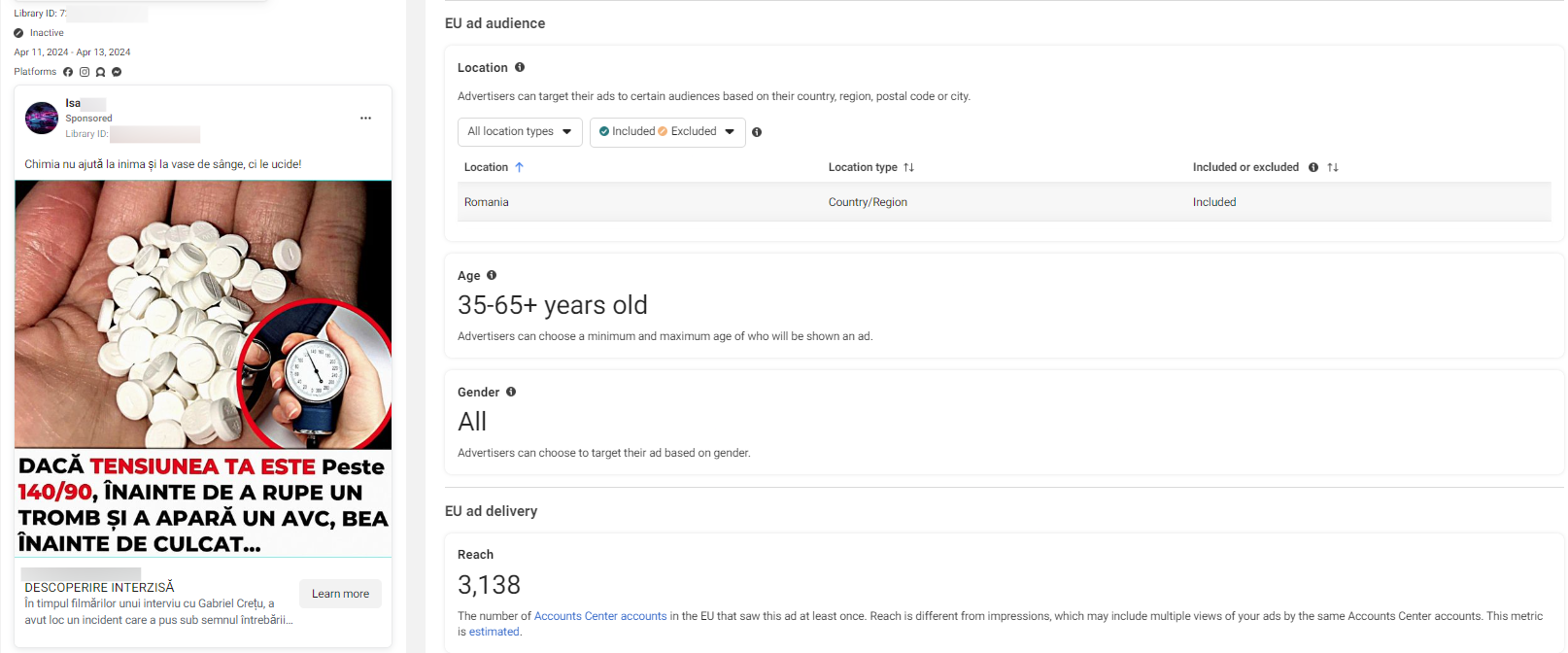
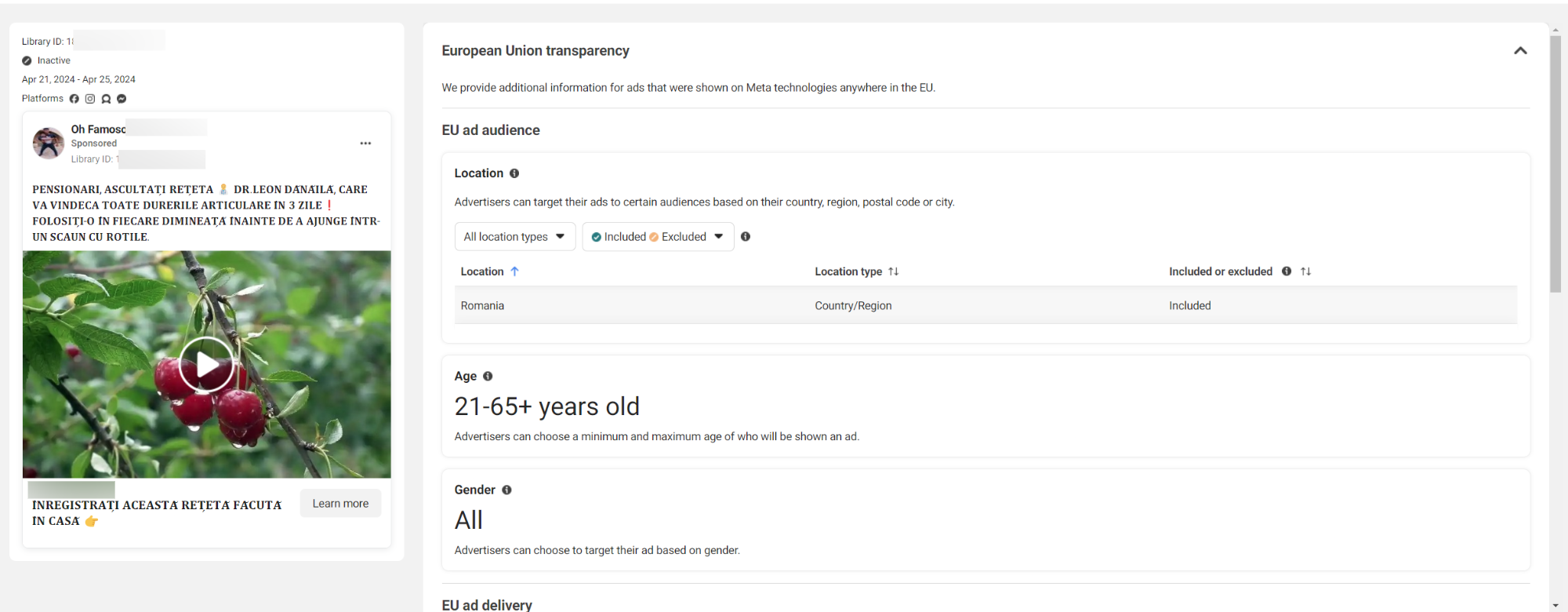
2. Using deepfake technology to impersonate well-known medical practitioners or respected figures in the medical field. For example, many ads claim their product is endorsed by influential physicians like "Doctor [X]” or “TV personality [X],” particularly in regions where these specialists are well known. To boost credibility, scammers use deepfake technology to create videos of these individuals who give a “scientific” explanation for the effectiveness of the products.
Images or videos of seniors aiming to evoke empathy are also used to endorse bogus health products, specifically if they are related to any geriatric illnesses.
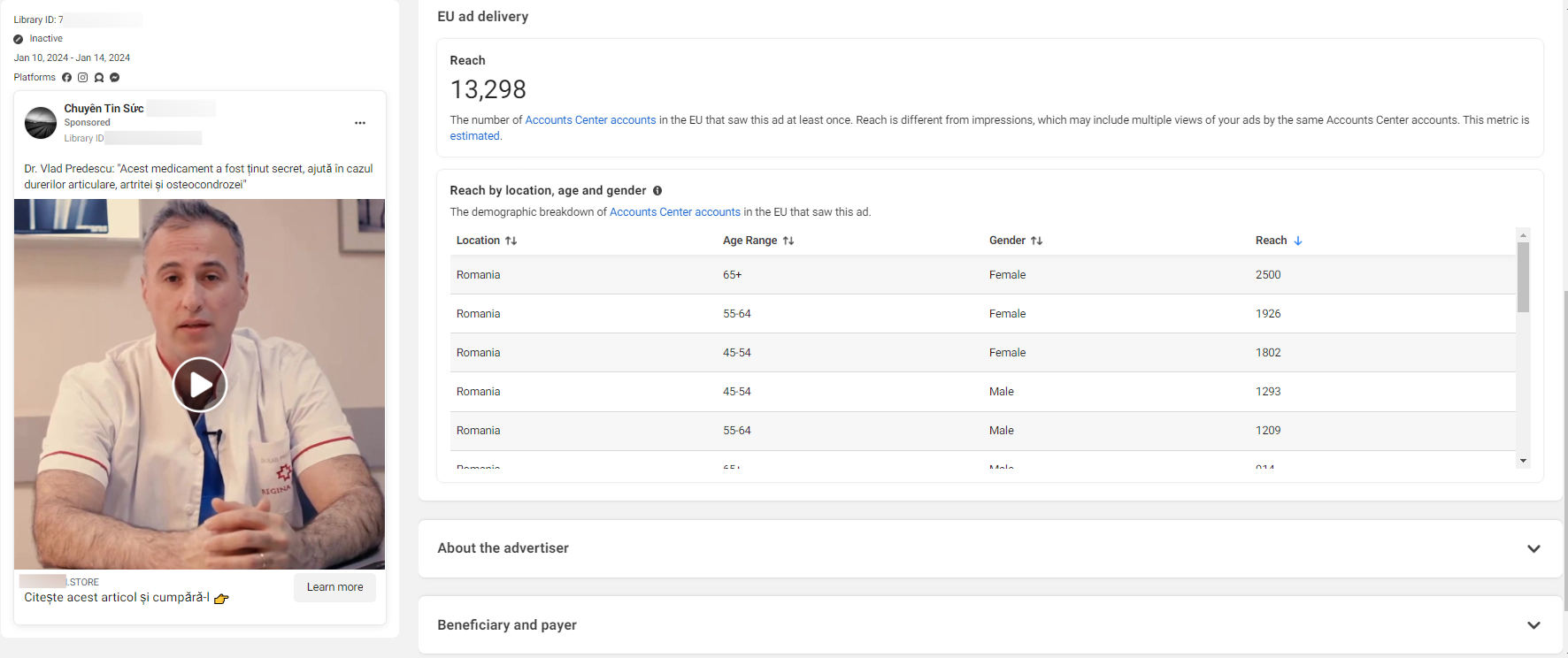
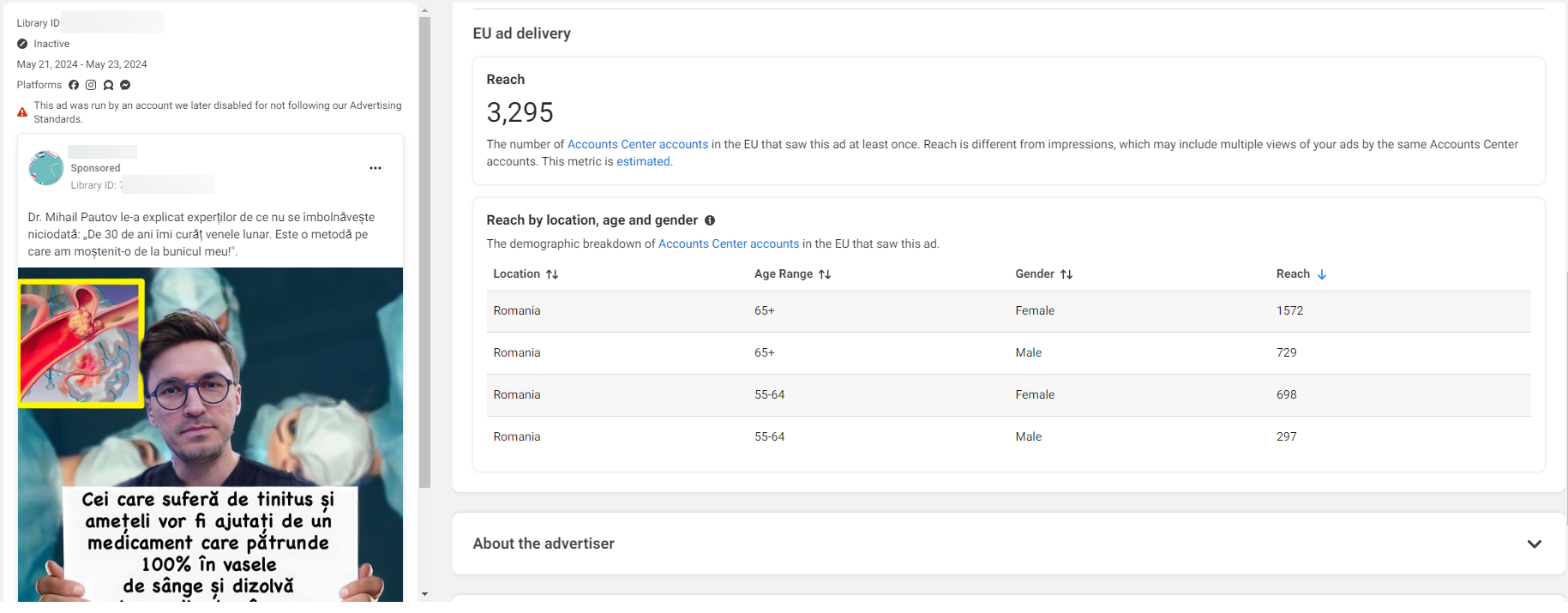
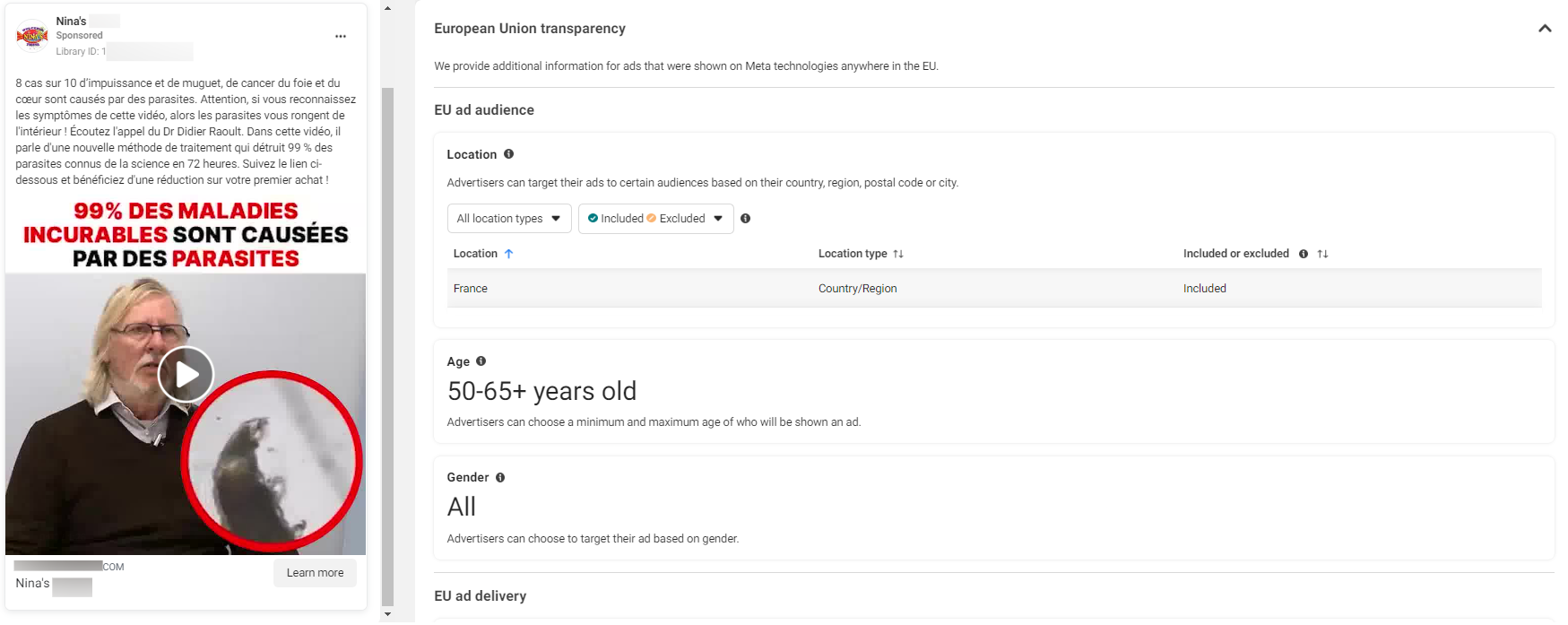
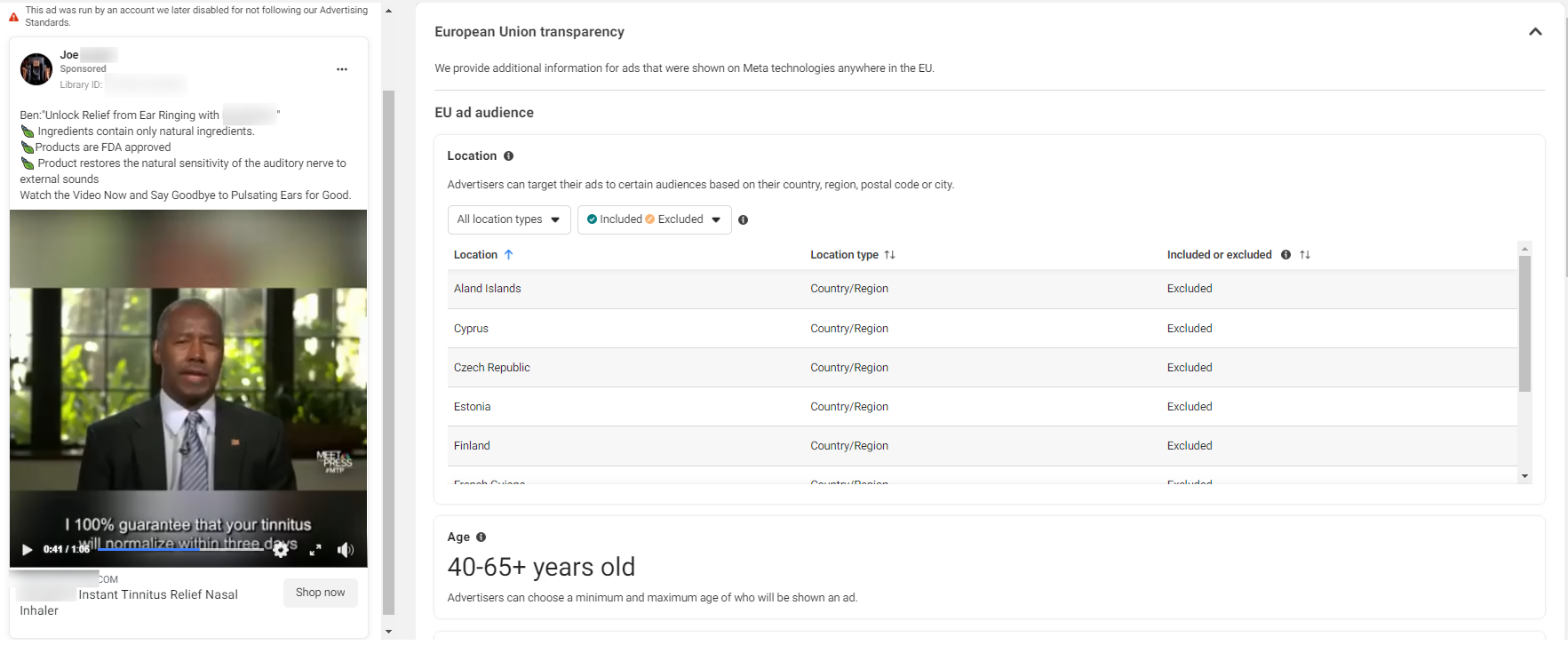
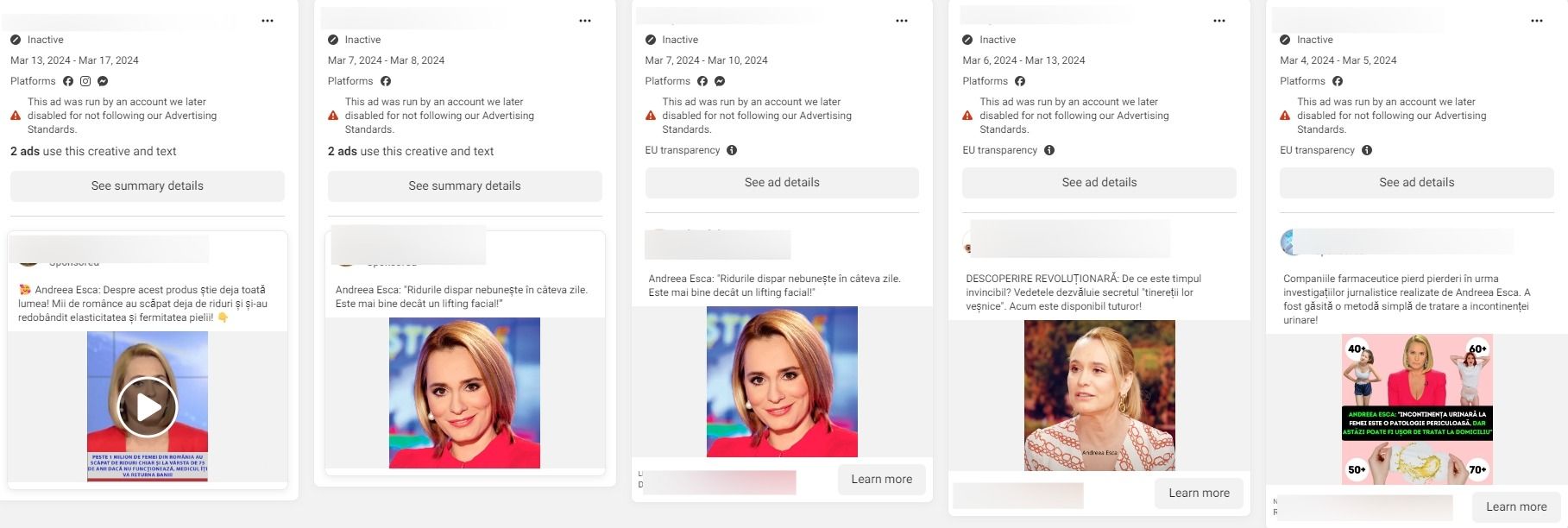
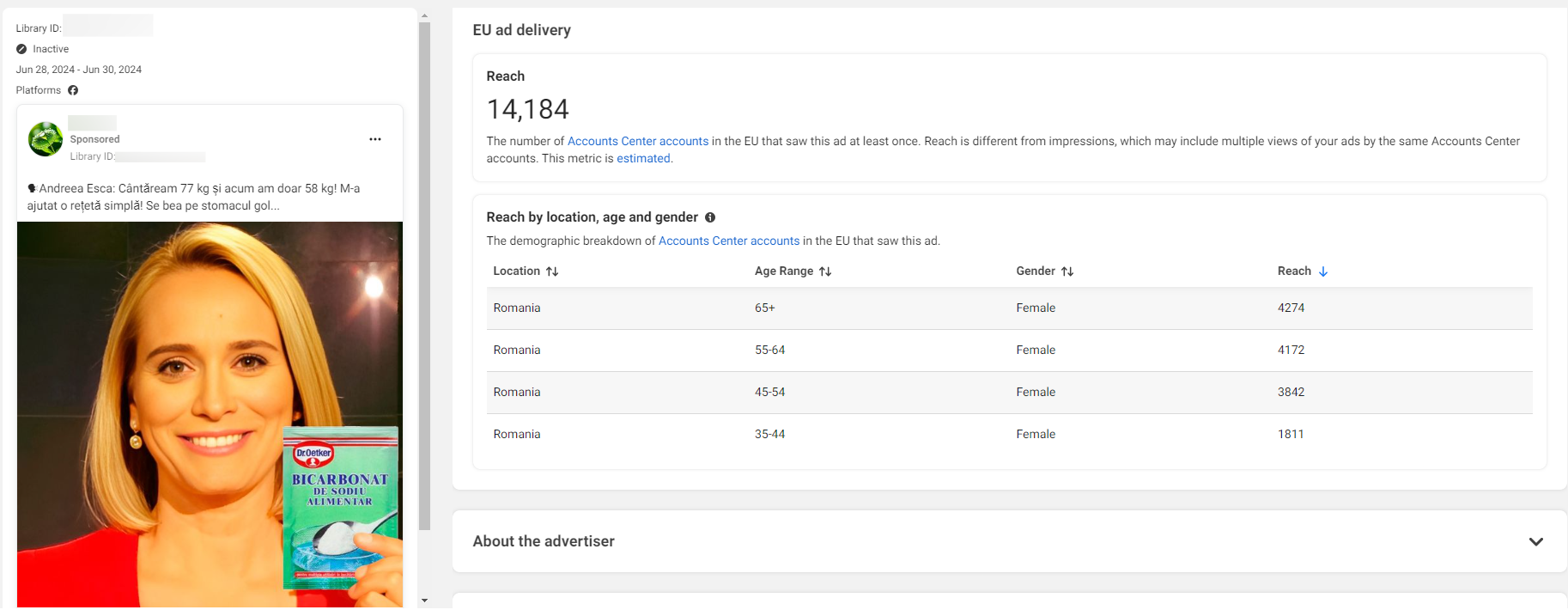
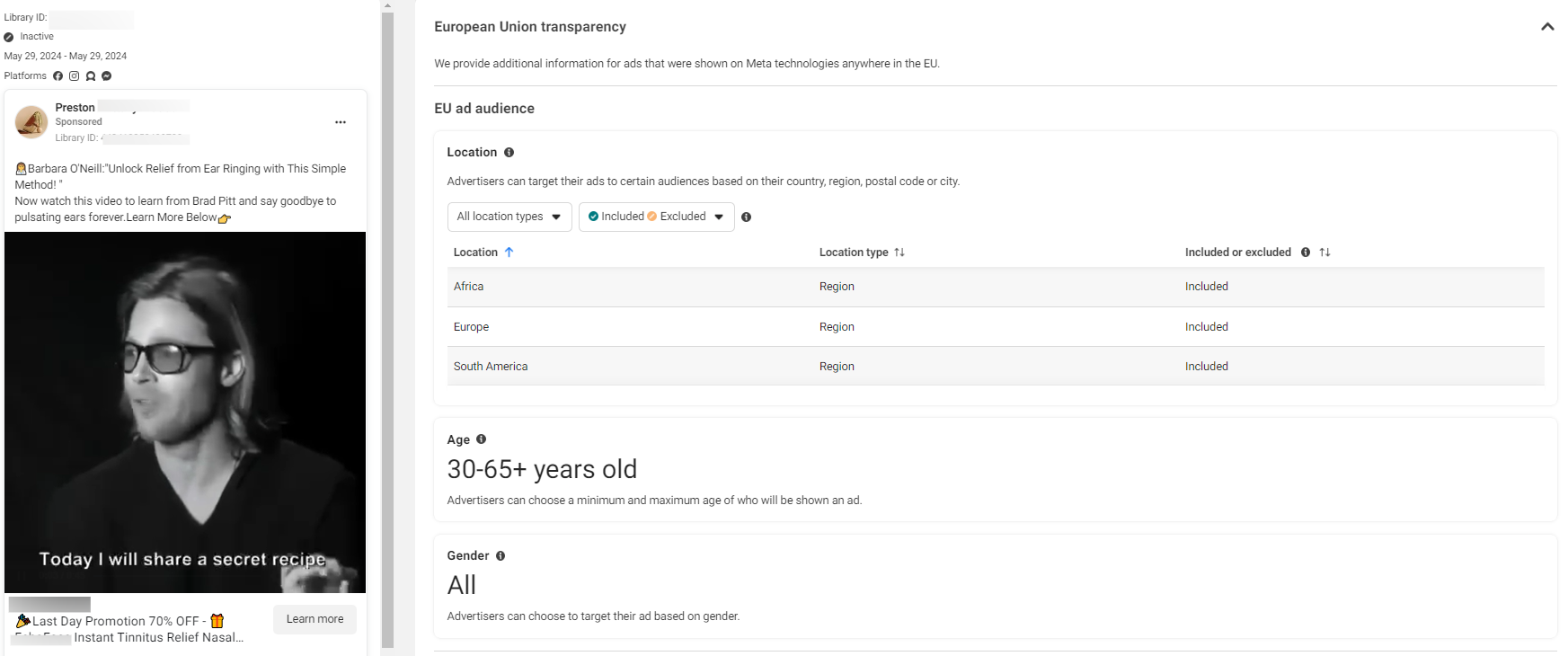
3. False promises. People might fall for these types of scams due to desperation or curiosity fueled by catchy yet false promises.
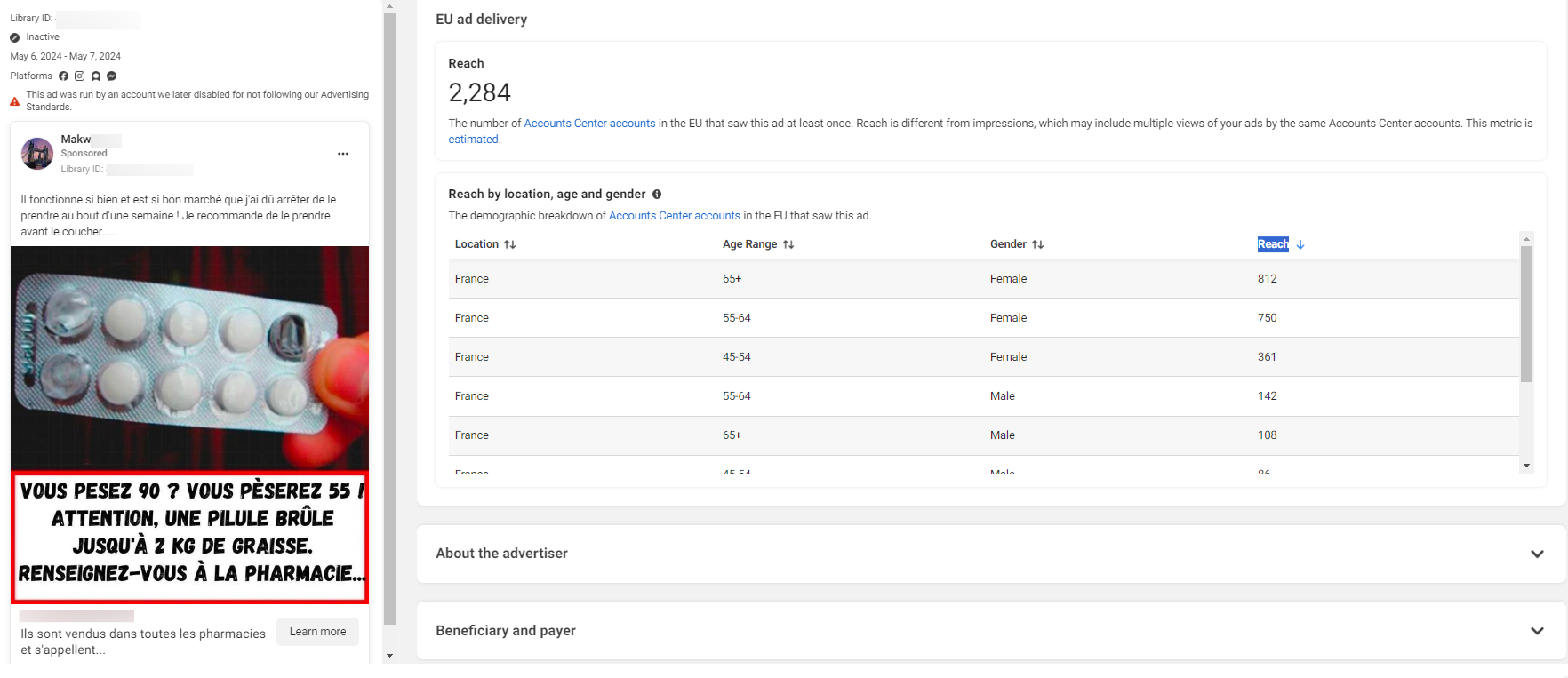
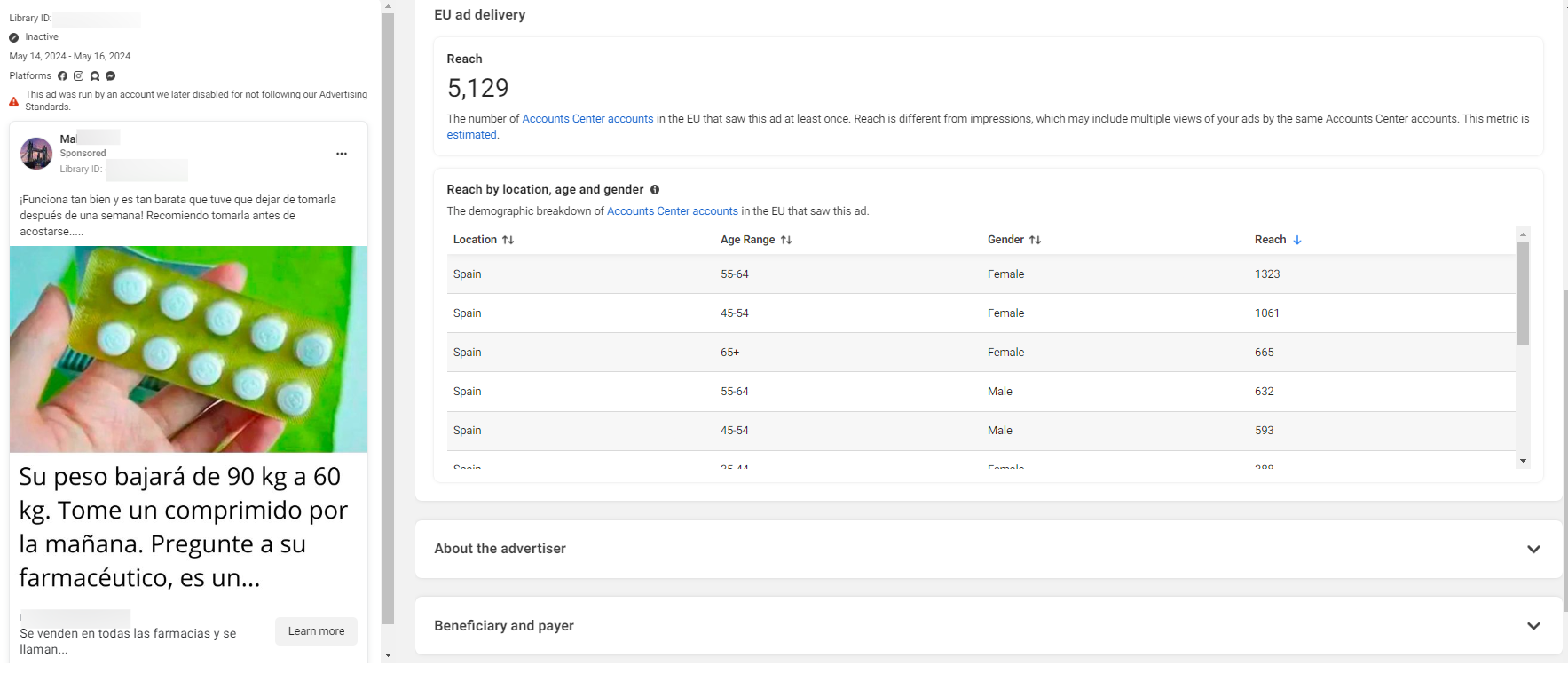
A CNN page clone promoting a fake tinnitus cure:
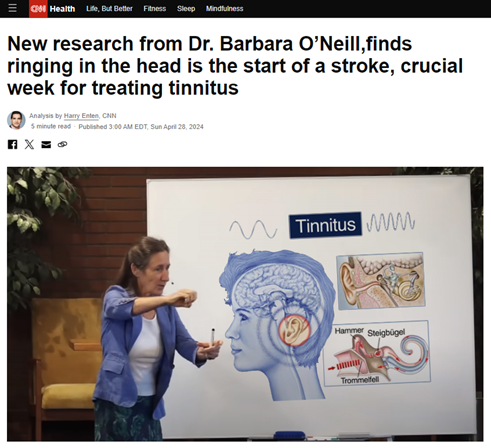
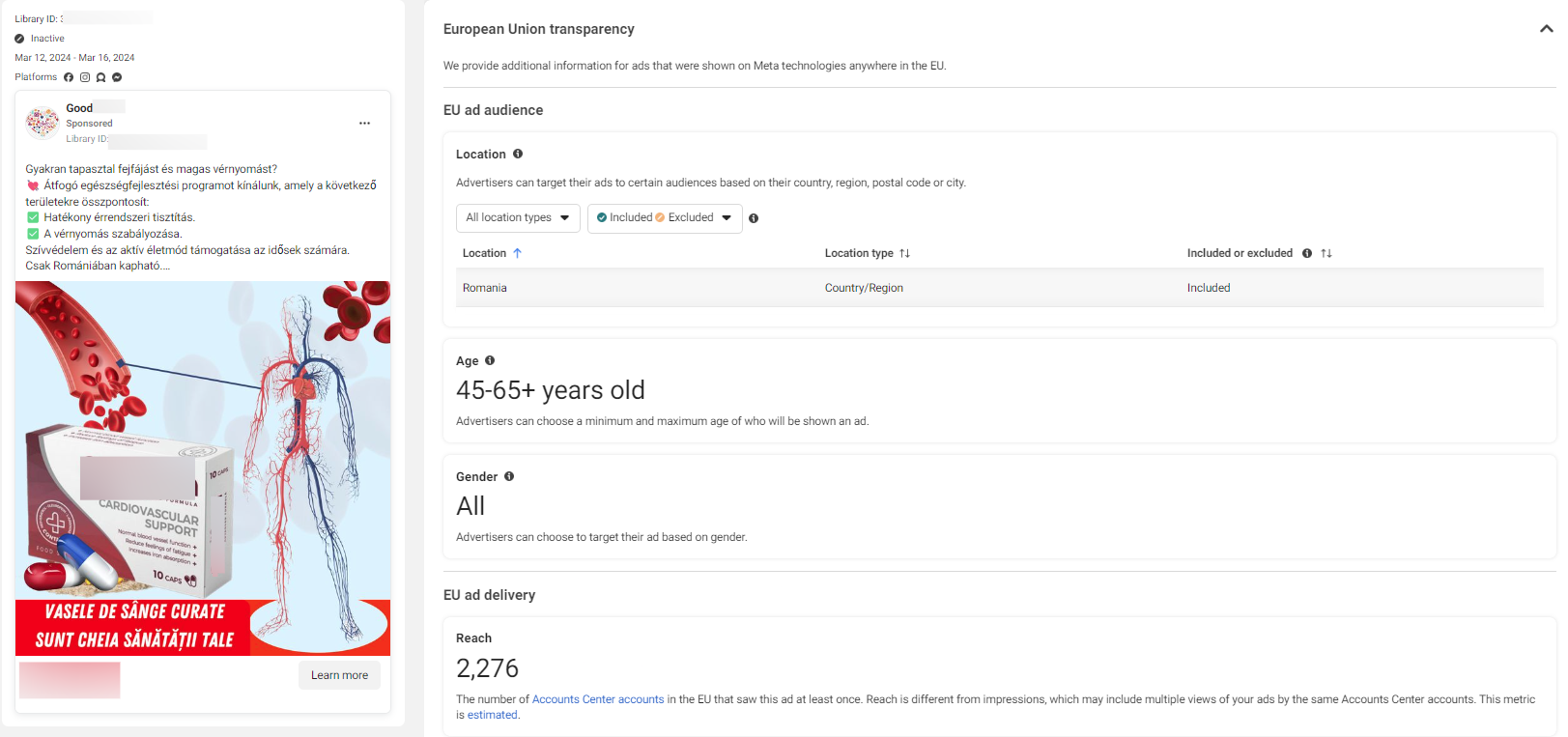
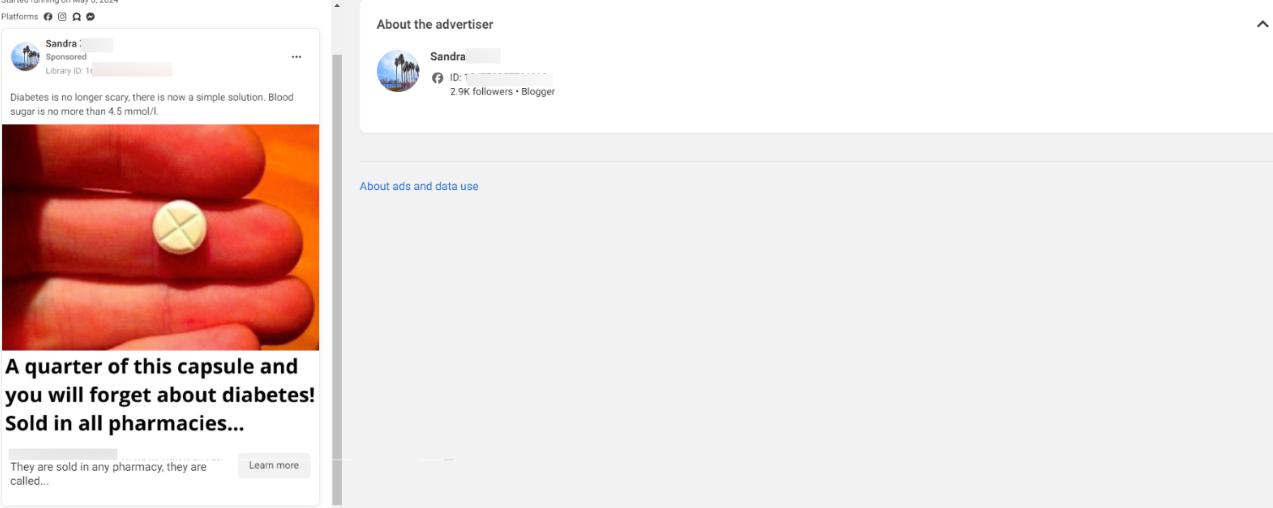
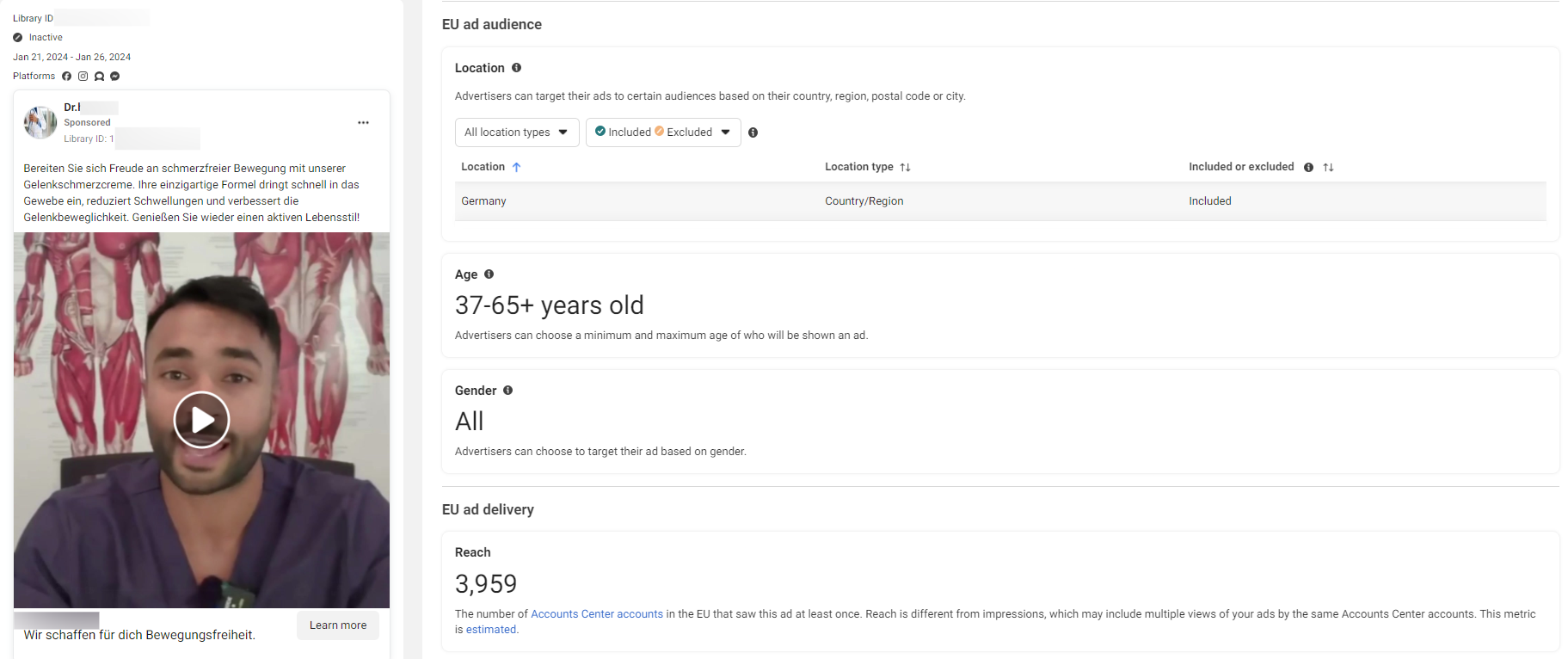
4. Persuasive messages. Examples of such messages include phrases like "limited stock," "act now or lose,” "promotion only today" or claims that it's a "secret remedy the pharmaceutical industry or doctors don’t want you to know." This may make people act out of pressure or hurry, without carefully inspecting the details.
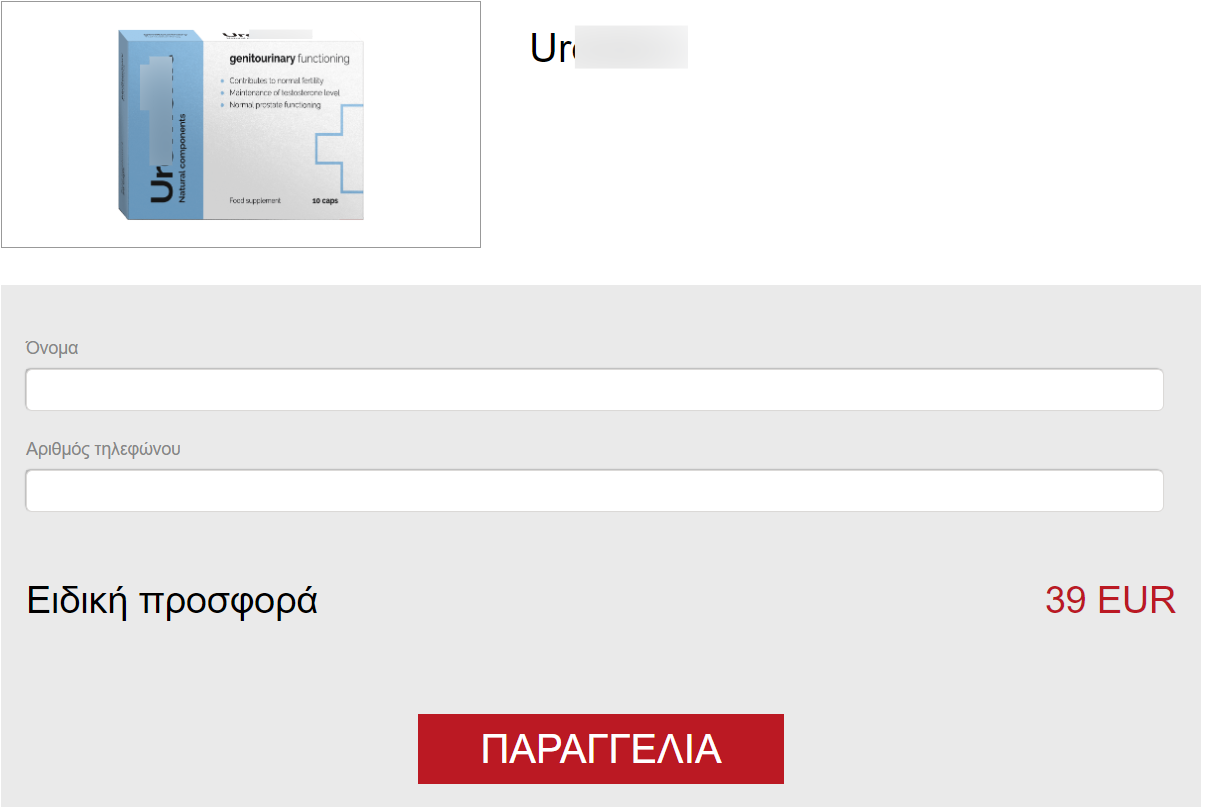
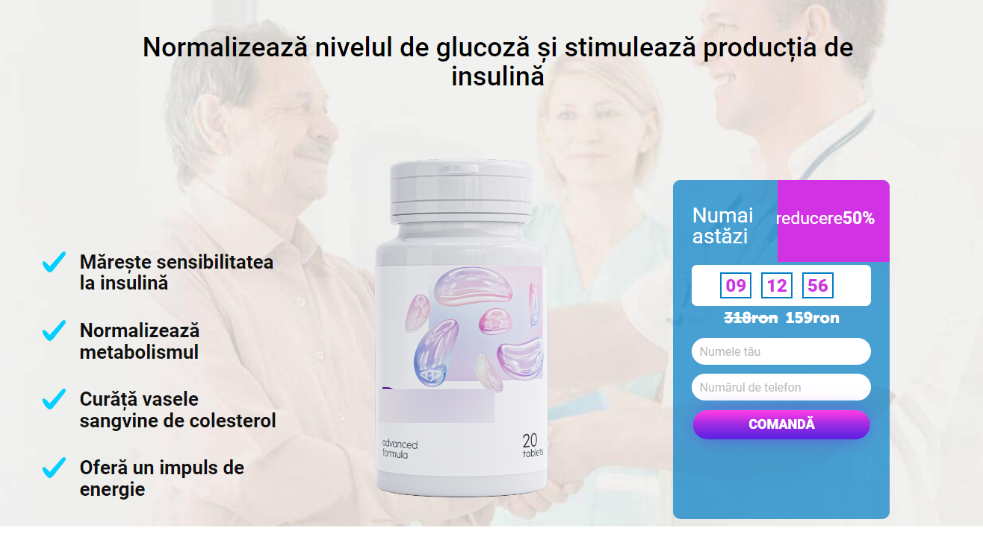
5. Promoted by pages that impersonate medical specialists. This is closely linked to the use of deepfakes for impersonation. Since the advertisement is tied to a respected specialist, victims may be convinced that the medicine will solve their problem.
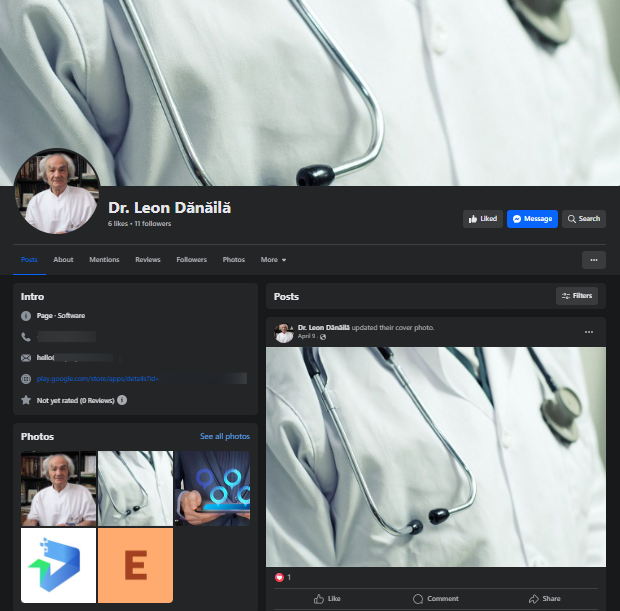

6. False reviews. They serve to deceive potential victims by creating a facade of legitimacy and positive feedback around the scammer's products or services.
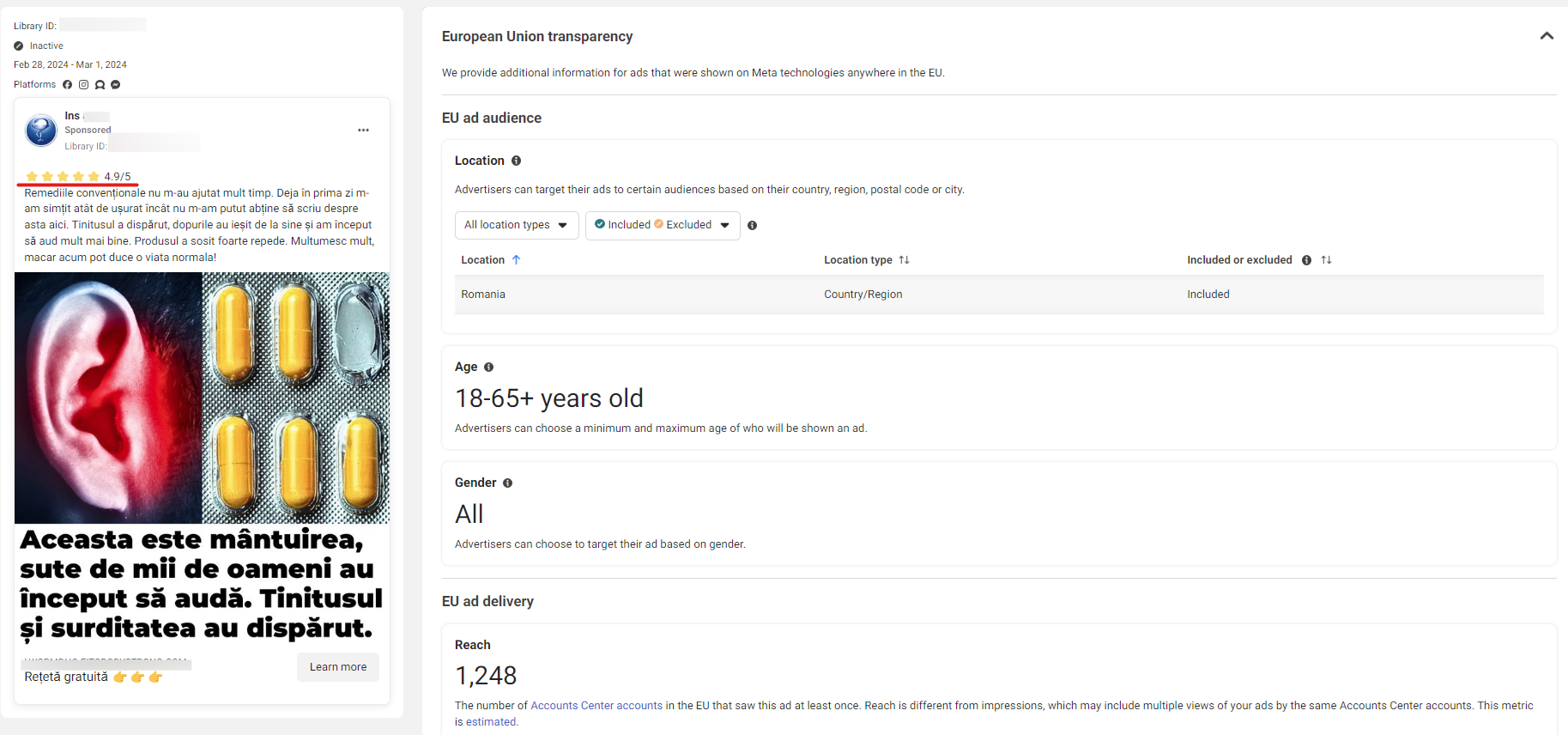
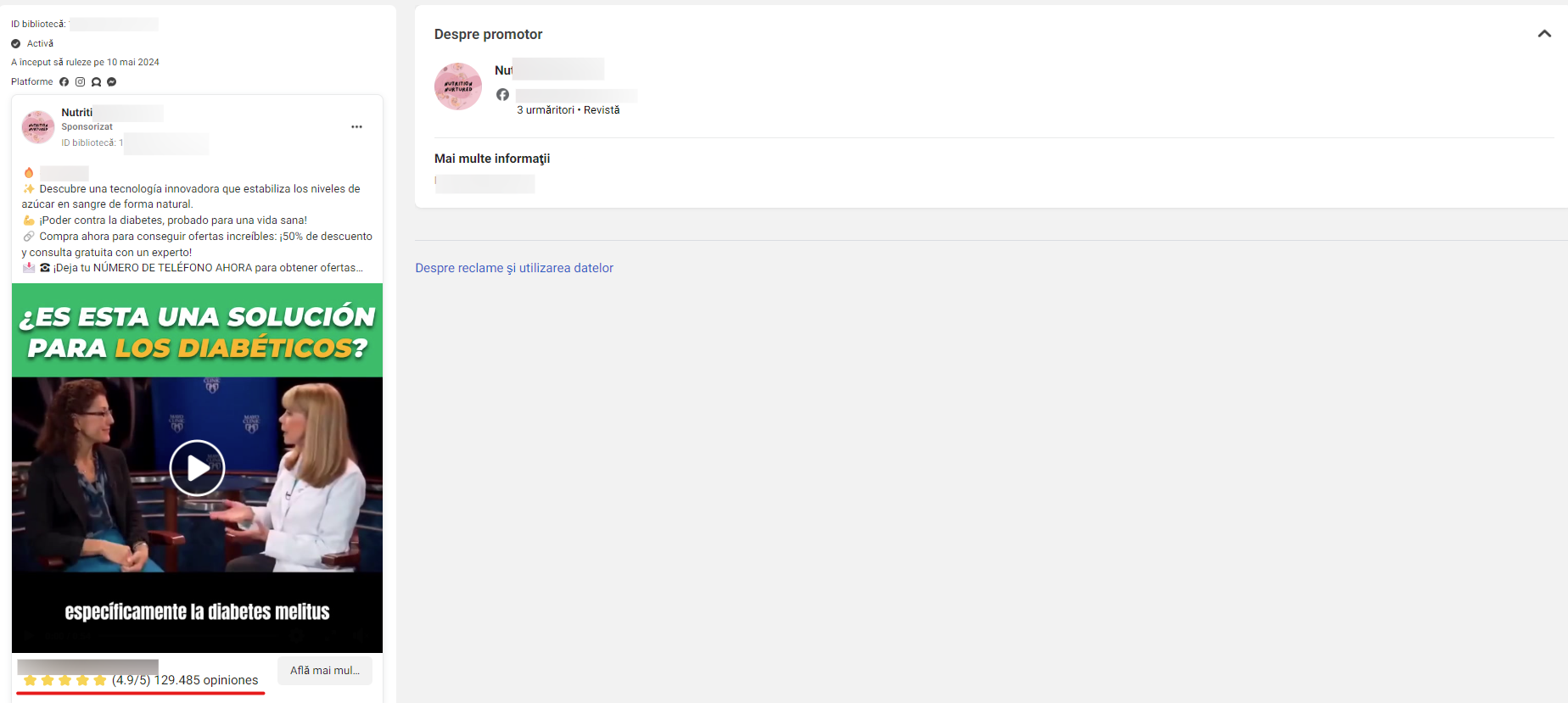
The anatomy of a supplement scam campaign
It all starts with fraudsters crafting social media pages to spread misleading advertisements. Bitdefender Labs researchers have spotted thousands of pages that promote cures for common ailments or health problems.

Here are some of their most common features:
· Pages have a modest number of likes or low engagement
· The pages have a generic name and give the sense of a trusted organization or health blog
· They lack posts or have vague wellness-related content
These pages, however, do excel in ads that promote products or supplements in a variety of languages (often by the same page). The ads use flashy images, deepfake videos and bold statements to catch the attention of the audience. The campaigns are well coordinated, with ads set to target specific countries, age groups and even genders. While so-called diabetes cures are not gender specific, beauty products and male performance enhancers are. The perps behind these campaigns even tweak their ads to reach a wide audience by targeting the specific needs of potentially vulnerable customers.
Most of the ads lead to a website promoting a health product along with a limited discount, fake reviews (presumably generated by LLMs) and fake conversation prompts with “specialists” that give potential customers the idea of a personalized treatment. These websites typically include approvals by trusted individuals from the country of the targeted audience – physicians, influencers, TV personalities and so on. While most of the websites are just poorly designed one-product e-shops, some clone popular news outlets from the targeted country.
Certain ads even make their way up to well-known media outlets, through paid articles.
All website instances share a common goal: maximize product sales using all sorts of marketing techniques including last-minute discounts, low stocks or fortune-based games that offer additional discounts.
Orders/purchases are typically initiated by entering personal data such as the name, email (sometimes required for additional discounts) and phone number. Upon submitting this data, customers are called by an “agent” who immediately asks for additional information to confirm the order. But most importantly, potential customers are told that they need to purchase multiple products to finalize the order, otherwise “the treatment wouldn’t have an effect.”
Trying to purchase a single product for test purposes is impossible, with agents emphasizing that they “respect their clients and want the best results.”
They are marketed as miracle supplements that promise to make patients feel better or cure different health problems.
Motivation behind online supplement peddlers
The supplement business is very profitable, and, unfortunately, it also attracts scammers who use digital tools to spread disinformation and attract unsuspecting customers.
The obvious motivation for the people behind these ads is financial, even though most of the promoted websites don’t immediately prompt for financial information but indicate that orders can be made by calling a specific phone number.
The use of deep fakes and the fact that certain products are promoted by hundreds or thousands of pages indicate that these shady promotion practices yield good results. Selling the metaphorical snake oil, while not uncommon, gains a huge audience and perhaps even credibility in the context of modern social media. While conducting this research, we observed thousands of social media pages and websites serving these supplement scams, and we believe that the real numbers are in the tens of thousands.
Another interesting detail is that the ad infrastructures used easily allow the publishing of such shady content – phrasing, pictures and videos frequently get changed to prevent easy moderation. If any of the pages involved get banned on any given platform, the actors will most likely have hundreds of others that can replace it. Some pages even have thousands of likes, which indicate the fact that scammers might even use stolen pages bought from the dark web, “rebranding” them so they vaguely resemble the topic in discussion.
Vulnerable groups
The ads are aimed at individuals that might have or think they have certain ailments. In our research, we have observed “medications” for conditions such as diabetes, sight related difficulties, joint pain, heart issues and so on. We have also observed “products” that have “miraculous” anti-aging or other aesthetic effects, and bold claims that guarantee to improve memory or repel Alzheimer’s -- all accompanied by positive testimonials and clinical studies. Most importantly, we’ve regularly noticed the claim that these impressive medical results are backed by extensive studies and approved or recommended by famous or well-known medical practitioners in the targeted community. Thus, the audience is extended to the fanbase of the impersonated trusted individuals.
An example of an ad impersonating a well-known physician
“Dr. Heinz Lüscher: Incurable joint diseases can be cured in 3 days! Thanks to a simple...”,

Other recurring topics are alcohol abuse, weight loss, and intimacy-related problems – plenty of ads promise that the products cure the condition in a couple of days.
While we cannot fully state that the ads are aimed at the elderly, certain ones are clearly framed in that manner. This ad description for example: “Aos 67 anos, pareço ter 40! Vou mostrar-vos como me livrei das rugas sem Botox.” which roughly translates to “At 67, I look 40! I'm going to show you how I got rid of wrinkles without Botox.”
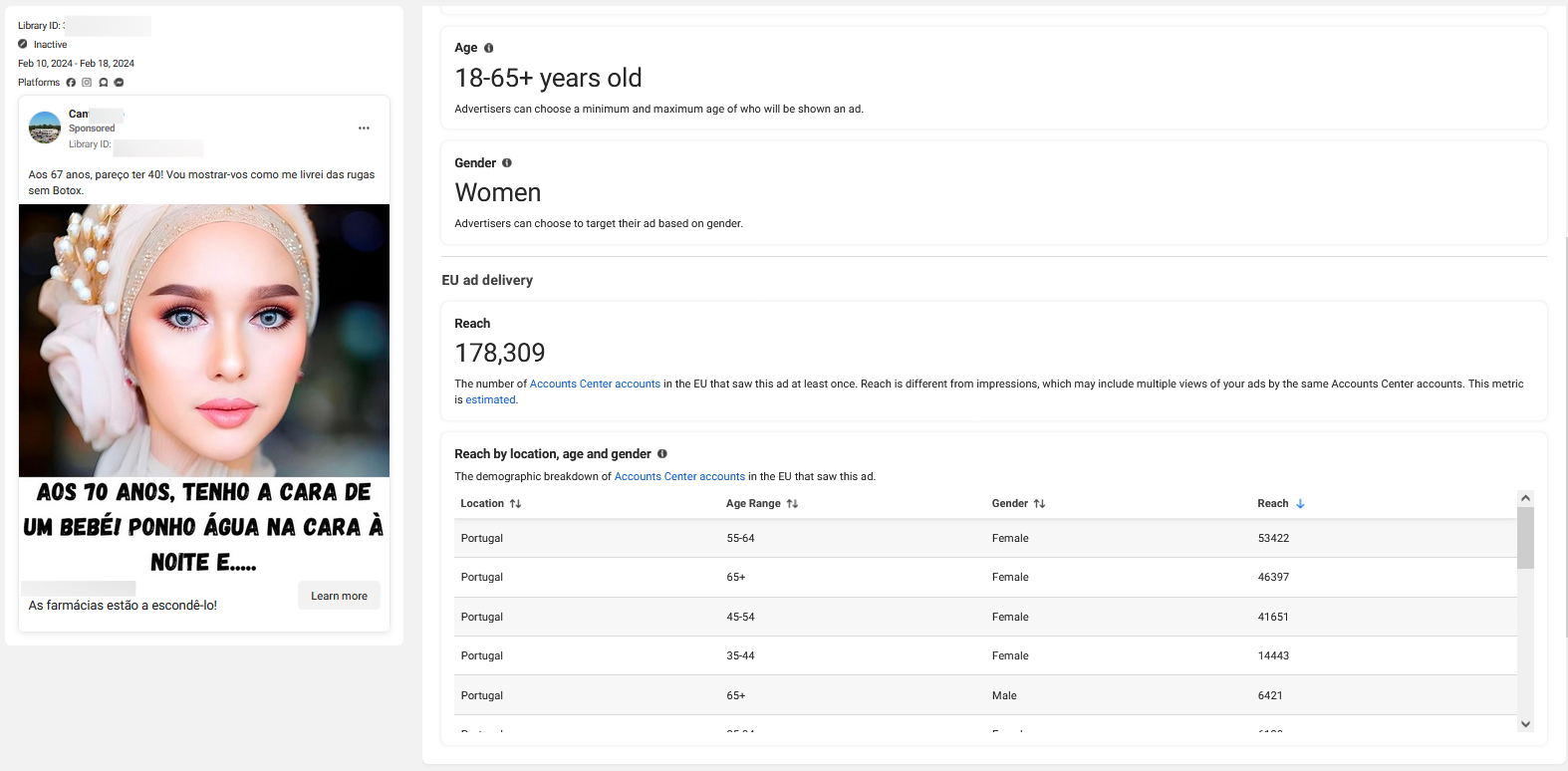
Another example clearly targeting the elderly would be “Jak jsem si ve svých 72 letech obnovil klouby - zbavil jsem se invalidity a běhám jako nový člověk!”, which translates to “How I Restored My Joints At 72 - I Got Disabled And I'm Running Like A New Person!”.

The fact that most analyzed websites allow the order of products via phone also indicates that the target audience might not be accustomed to online orders or payments.
How to identify supplement scam ads
Most of the fraudulent ads can be first identified by looking out for these warning signs:
- They promise that a product will help treat or prevent diseases or even cure multiple ones
- The agents use aggressive sales tactics and give you medical advice
- The supplements are endorsed by well-known celebrities or medical practitioners
- The ads rush you into placing an order by citing limited supplies and huge discounts
- You cannot purchase a single product and are required to fill out a form or call a number
- The ads have hundreds of positive reviews from satisfied customers. The links on which the product is promoted might also mention spectacular discounts or the unique opportunity to play a luck-based game to gain one (wheel of fortune, what’s behind the door, etc.):


Use caution when running into this type of messages:
- [person] has revealed the secret about [illness];
- Doctors/physicians are lying about [illness];
- This natural method has already helped thousands of people in [Country];
- Symptoms will disappear in [short amount of time];
- Results from the first days of using! 100% natural with no adverse effects;
- It is time to say goodbye to [illness];
- Anybody that has [illness] - read this before it gets deleted!
- Pharmacies have tricked us
How to protect against supplement scams
- Follow the instructions only of a certified physician when it is necessary to use certain medications or medical products. Fake or bogus supplements may pose serious health risks and contain dangerous substances.
- Research supplement companies and products online before making any purchases or handing out your contact information or credit card. Look for any customers complaints.
- Verify all supplement ads you come across on social media platforms, including Facebook. Be wary of ads using medical jargon. Scammers will use scientific-sounding terms to mislead you into making a purchase. If you are not familiar with the particular brand, talk to your healthcare provider first.
- If a supplement website still looks credible, one might use tools such as WHOIS to check the domain registration date – if it was registered recently, it is again a reason to ignore and/or report the ad.
- Never pay by debit card and keep a close eye on any credit card statements to check for recurring payments.
- Use a dedicated security solution with anti-phishing and anti-fraud filtering systems to fend off harmful platforms and websites.
Worried about scams?
When unsure about an email, online proposal, text or request, you can check it with Bitdefender Scamio on WhatsApp, Facebook Messenger, or a web browser for free! Copy/ paste a text or link, describe the situation, and upload the image or the QR code you want to verify. Scamio will analyze the data and tell you if anyone is trying to scam you. You can also help others stay safe by sharing Scamio with them in France, Germany, Spain, Italy, Romania, Australia and the UK.
tags
Author

I'm a software engineer with a passion for cybersecurity & digital privacy.
View all posts
Andreea is a software engineer focusing on risk analysis and working on digital security against online threats.
View all posts
With more than 15 years of experience in cyber-security, I manage a team of experts in Risks, Threat Intel, Automation and Big Data Processing.
View all postsRight now Top posts
Infected Minecraft Mods Lead to Multi-Stage, Multi-Platform Infostealer Malware
June 08, 2023
Vulnerabilities identified in Amazon Fire TV Stick, Insignia FireOS TV Series
May 02, 2023
EyeSpy - Iranian Spyware Delivered in VPN Installers
January 11, 2023
Bitdefender Partnership with Law Enforcement Yields MegaCortex Decryptor
January 05, 2023
FOLLOW US ON SOCIAL MEDIA
You might also like
Bookmarks











